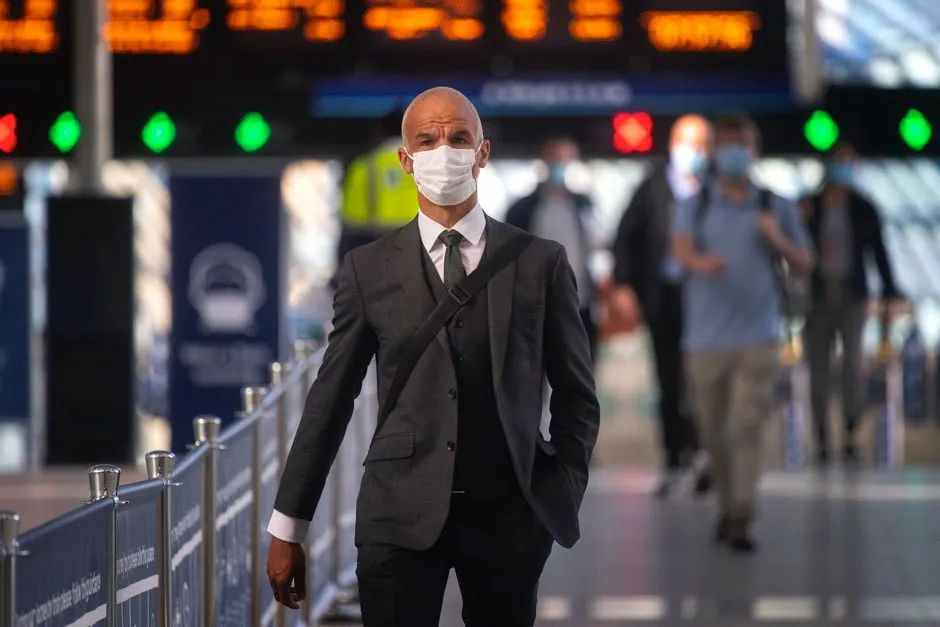Making face coverings mandatory in public places, combined with effective testing and tracing, could dramatically cut the number of future deaths from COVID-19, researches say.
A team of experts investigated different scenarios for capping the UK death toll and found that extensive testing, tracing and isolation, combined with widespread use of face masks, could save 50,000 lives and £700 billion of GDP over the next two years.
They based their death count on a government death toll of just over 40,000 people by 5 June – although other estimates put the figure much higher.
At present, face coverings are mandatory on public transport and in hospitals in England – and are recommended in crowded places, such as busy shops.
Read more on the coronavirus outbreak:
- Coronavirus blood trial targets hormone imbalance
- Link between coronavirus and heart diseases undergoes major study
- Coronavirus entered the UK 'at least 1,356 times'
The new study, co-led by University College London (UCL), the University of Edinburgh and the University of Haifa, has not yet been peer-reviewed. (The peer review process is designed to weed out errors, misinterpretation or flawed research methods. But as the peer review process takes time, in order to speed up the distribution of research scientists do post papers to pre-print archives first.)
It suggests that the UK death toll could be capped at around 52,000 with effective test, track and trace and the use of face coverings – roughly half the deaths that might be seen without effective test and trace.
The researchers also suggest short additional lockdowns may be needed to drive down the number of COVID-19 cases further to allow the implementation of a large-scale test-and-trace policy.
The model also assumes that all people with symptoms are tested and all their contacts are traced and do self-isolate.

Lead author Dr Tim Colbourn, from UCL’s Institute for Global Health, said: “Our results make a strong case for expanding testing and tracing immediately to control COVID-19 spread until a vaccine or highly effective drugs are available.
“By clearly showing the health and economic benefits that such a system could lead to, we hope our study will help to galvanise support for integrated testing, tracing and isolation for the UK.”
How can I protect myself from the coronavirus when shopping?
You’ll have seen signs in your local supermarket advising you to keep two metres from others while moving around the store. This is key to reducing your chances of catching the virus while shopping.
The coronavirus SARS-CoV-2 is spread through respiratory droplets that leave our mouth and nose when we cough, sneeze, or sometimes even talk. The droplets sprayed out by an infected person will contain the virus, which could then enter your body via your mouth, nose or eyes (this is why you shouldn’t be touching your face).
Respiratory droplets don’t usually travel more than one metre, so by keeping two metres from others, you’ll reduce the likelihood of being in the firing line. To make it easier to keep your distance, try to shop during off-peak hours, choose a store that’s limiting the number of people who can be inside at any one time, and use self-checkout if you can.
Keeping your hands clean is the other main thing you can do. If possible, wipe the trolley or basket handles with a disinfectant wipe when you arrive at the store. When you get home, wash your hands or use hand sanitiser before and after unpacking your bags.
A US study found that the coronavirus can survive for up to 24 hours on cardboard, and up to three days on hard, shiny surfaces such as plastic, so wiping down your purchases with a disinfectant spray or a soapy cloth before you put them away is another good habit to get into.
Read more:
